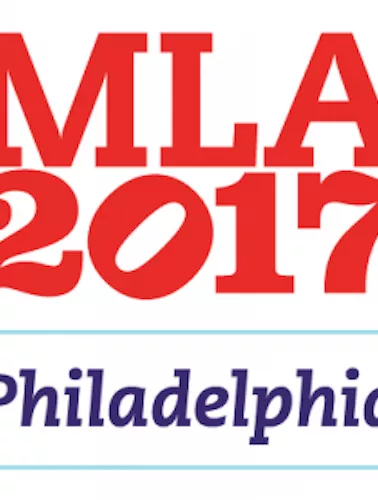
The main conceptual tension we face today when we talk about digital pedagogy is the tension between openness and safety. We are drawn towards the possibilities offered by making our work more accessible, letting our students join authentic conversations, and more richly explaining what we do to the world outside the academy. Yet at the same time, we want our students and scholars to enjoy the security and safety which have traditionally come from the closed LMS, the paywalled database, and the strict division between our personal and public lives.
I found these competing themes playing out again and again at panels at the recent Modern Language Association Convention, held in Philadelphia this January. The major conference for English and the other modern languages, the MLA featured nearly 800 panels, many concerned with digital scholarship and innovative teaching. Most of my impressions here are, however, based on two specific panels: “Curating Digital Pedagogy in the Humanities,” and "Local Digital Humanities."
Open, participatory pedagogy can transform a conference session
Perhaps the best advertisement for open pedagogy is the liveliness and vitality of its conference sessions, which were often experimental or interactive. The “Curating Digital Pedagogy in the Humanities” session, for example, featured talks by authors and editors of Digital Pedagogy in the Humanities, a “curated collection of reusable and remixable pedagogical artifacts for humanities scholars,” available openly online and peer-reviewed by the broader public. As the speakers presented on the key conceptual trends, the audience spontaneously engaged in their own open, public, collaborative writing project. After one of the presenters noted that digital pedagogy’s rise was still not reflected in a Wikipedia entry, several audience members decided to create one. They announced their plan on Twitter at the beginning of the session, and by the end, they had created a stub entry.
Ok, folks. We got exactly 60 mins. to give the panelists a gift after the #s155 panel is over: https://t.co/4VgAkZZVsk #mla17 #getyourwikion https://t.co/sd1TdwM07I
— Alex Gil (@elotroalex) January 6, 2017
Openness enables more meaningful community engagement
At “Local Digital Humanities,” panelists discussed engaging with the public as academics. This panel made a strong argument for the idea that digital pedagogy has the potential to positively impact people’s lives beyond the classroom, featuring powerful examples such as Alex Gil’s work on connecting young prison inmates to the world via Twitterbot.
Establishing this type of deeper engagement takes work. Laura McGrath noted that digital projects, even those which explicitly attempt to connect to the public or serve a social justice-oriented mission, often tend to imagine the community only as the subject of or audience for projects. She proposed a model of digital work that engages the community in collaborative partnerships through 1) inviting the community to participate in the shared creation of knowledge, and 2) staying oriented towards process, rather than product. (Incidentally, this seems like a pretty good model to me for any sort of collaborative digital work, even though which don’t attempt to immediately engage the public.)
@LBMcGrath: community partnerships should involve the local community in research, rather than just publishing about them #s696 #mla17
— Hannah Alpert-Abrams (@hralperta) January 8, 2017
But safety feels especially urgent
Concerns about student safety always come up at these sorts of panels, often linked to the acknowledgement that we cannot entirely shield students from engaging with the public during college and expect them to be responsible users of technology after college. Zach Whalen, acknowledging these concerns, spoke about the idea of establishing multiple types of spaces—both “safe” and “brave”—in which students can participate online.
Even beyond the classroom, data security was a particularly urgent concern. MLA featured its first "cryptoparty" late on Saturday evening. Part of a worldwide trend of data security events, cryptoparties encourage attendees to secure their personal data through best practices such as password managers and two-factor authentication for email.
Engaging openly, but carefully?
While there are clearly some rough waters ahead of us as we continue to navigate the possibilities of open resources, open access, and open boundaries of the college, I found the conversation at the MLA particularly helpful in setting out the exciting potentials for a more open digital pedagogy. I’m excited to continue to track how this conversation plays out, in the humanities and in the ed tech world.